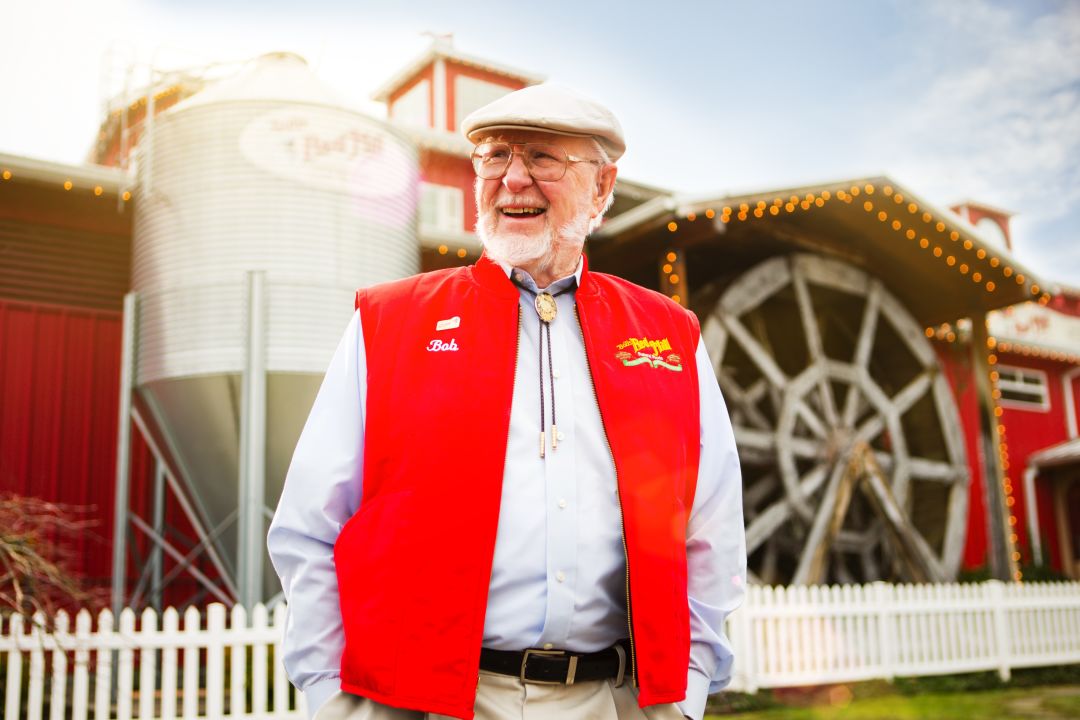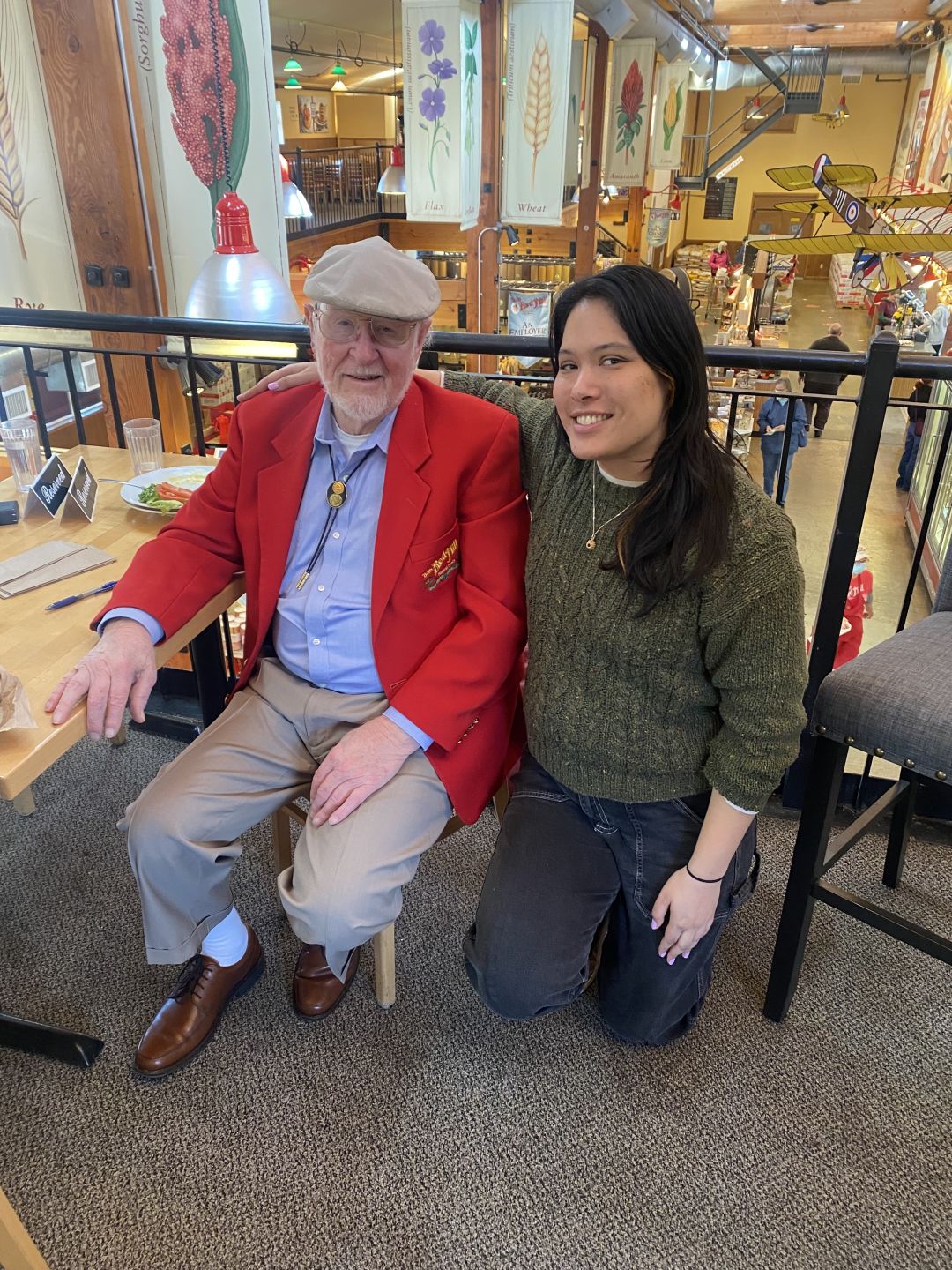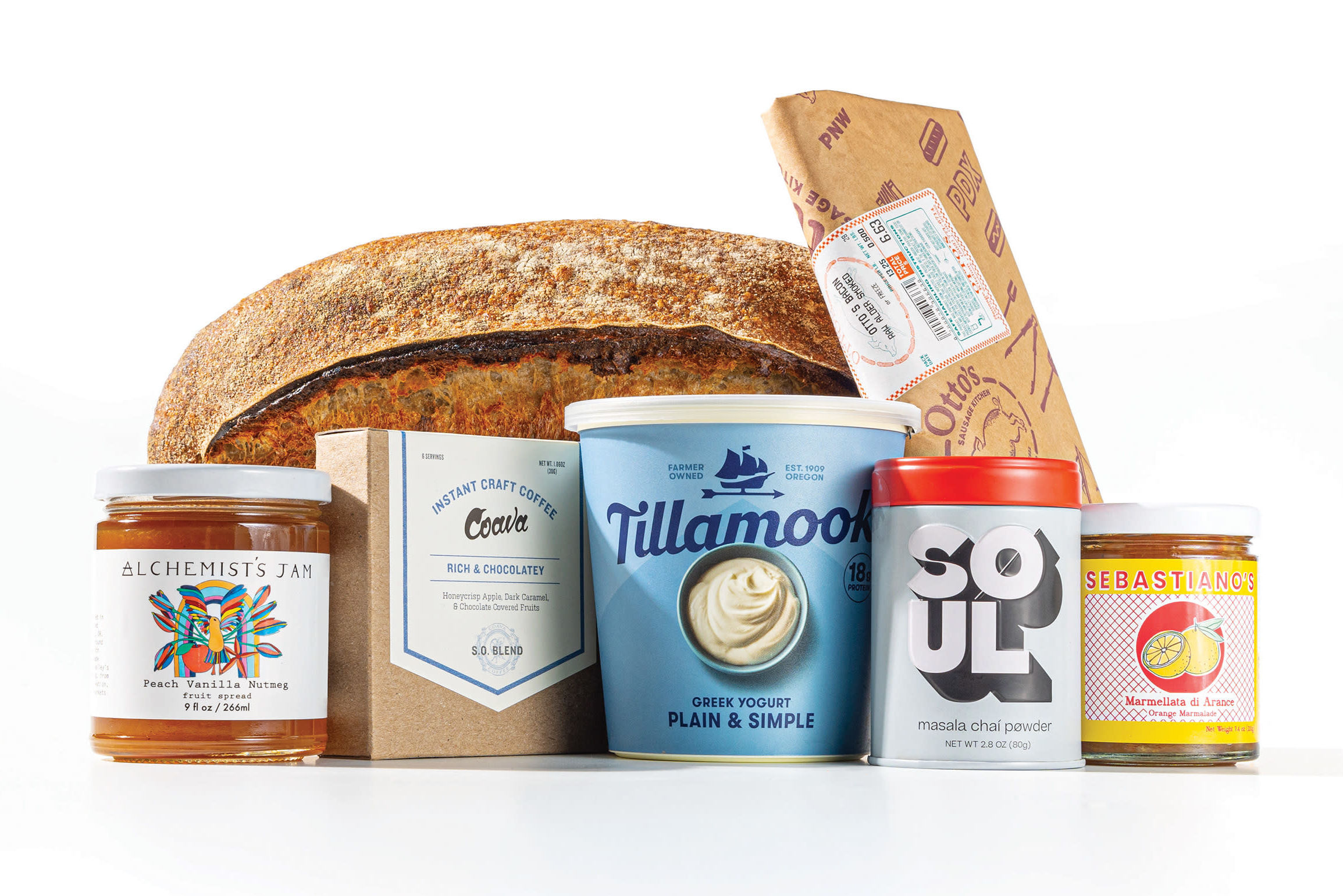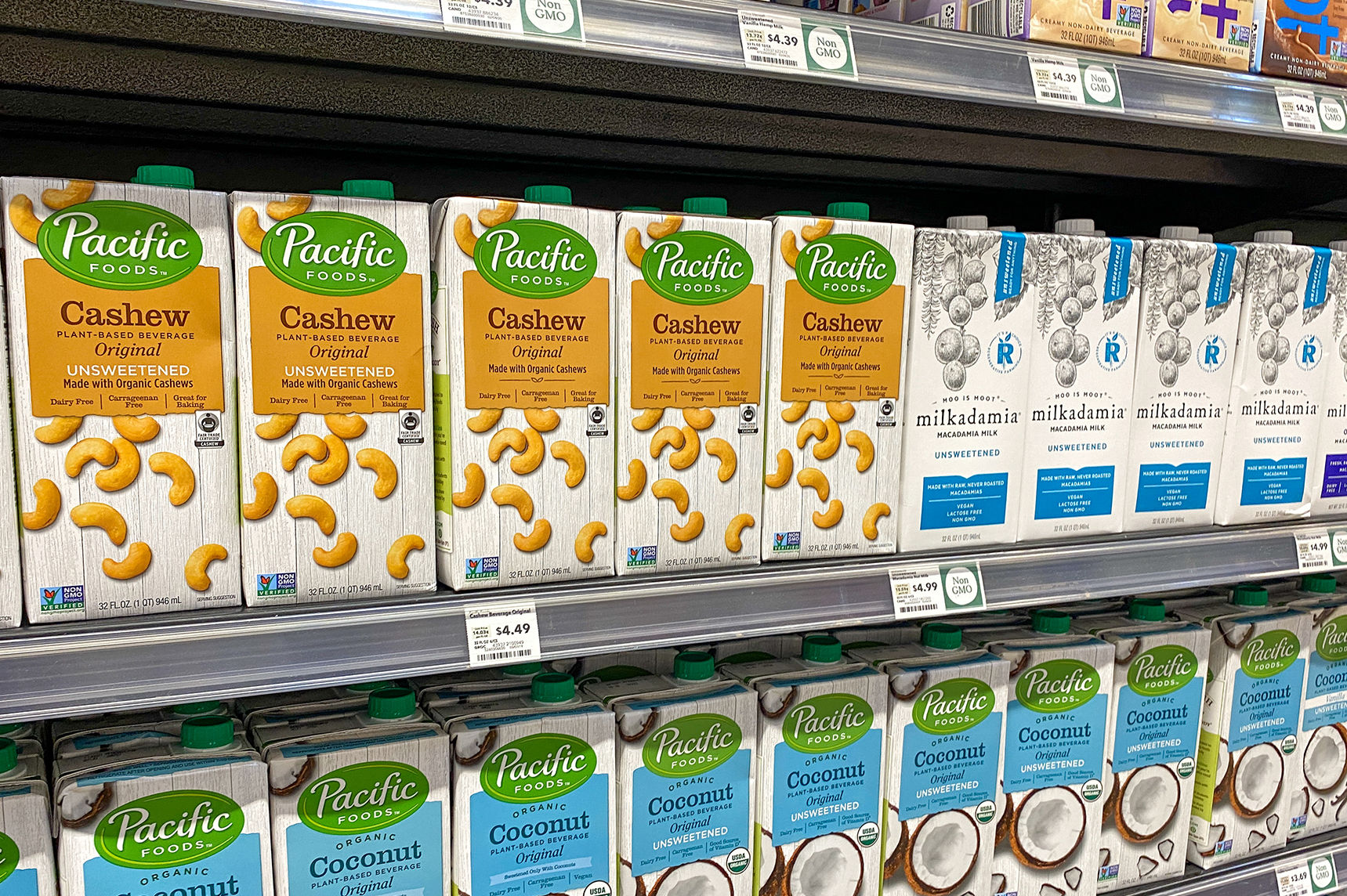Bob Moore of Bob’s Red Mill Turns 94

Bob Moore, founder and president of Bob's Red Mill
Image: Courtesy Bob's Red Mill
Long before New Seasons opened, and before Portland brands like Smith Teamaker and Dave’s Killer Bread went national, there was Bob’s Red Mill. Founded in 1978 in Milwaukie by Bob Moore and his wife, Charlee, the company embodied his belief that freshly milled whole grains were key to good health. He’s been eating hot cereal and oatmeal for about 70 years and just turned 94, so there might be some truth to that. (Try this at home: Moore likes his steel-cut oats with flaxseed meal, walnuts, sliced banana, turbinado sugar, and skim milk.) Not only is he sharp and mobile, he also shows up to work most weekdays and says he has no plans to retire.
At his birthday party on February 15, an annual tradition at the Bob’s Red Mill store in Milwaukie, members of the public and current and former employees alike showed up to celebrate, a line snaking through the store’s café as people waited to take photos with Bob as if he were Santa Claus. (The red vest and white beard certainly help with the comparison.) Guests gave gifts: a quilt made of old company T-shirts from its 45-year history, a metal grasshopper handmade by a former employee, and a heap of about 250 birthday cards. A live band, with acoustic bass, mellophone, clarinet, and banjo, played “After You’ve Gone” and other old jazz standards—one of Moore’s favorite genres of music to play on the piano—and there was even a banjo solo about spurtles, the wooden sticks traditionally used by the Scottish to make oatmeal. (In 2016, Moore won the prestigious Golden Spurtle prize, awarded at the yearly World Porridge Making Championship in Scotland.)

Bob Moore and PoMo food editor Katherine Chew Hamilton at Moore's 94th birthday party
The foundation of Bob’s Red Mill, and the fact that it was born in Milwaukie, was sort of a happy accident. Though born in Portland, Moore grew up in Los Angeles, owned a couple of gas stations (one of which miserably failed), and worked various jobs. He and Charlee moved to Redding, where one day, during a time when he was working at JC Penney’s now-defunct auto center, he stumbled upon a copy of a book called John Goffe’s Mill in the library. The book detailed a professor’s decision to leave behind academic life and restore his great-great-great-great grandfather’s old stone mill—and people were, he wrote, beating a path to his door to get their hands on freshly milled wheat and cornmeal.
The Moores started a small mill in Redding with antique milling stones, then left their sons to run the mill while they moved to Milwaukie for what was supposed to be their "retirement": going to theology school to study the Bible in Greek and Hebrew. One day, while going for a walk and reviewing their Bible flash cards, they stumbled upon an old abandoned mill. They decided to buy it—and it would eventually become Bob’s Red Mill. Moore was 50 years old when he started the business.
Though the Moores tried to continue theology school while running the mill, the mill grew quickly. As of 2018, the business was generating $50 million per year in revenue, available for sale in every continent except Antarctica, and is entirely owned by its employees. We sat down with Moore on his 94th birthday to talk about the history of his company in Portland.
Katherine Chew Hamilton: How do you think having the business in Portland shaped it, as opposed to having it in, say, Los Angeles or Redding
Bob Moore: It’s only speculation, but Portland was just the right size community to be successful. The media here was very excited about my opening up the old mill, and I had a nice response from the various TV channels. The next thing I know, I’m on TV that night. And Mr. Meyer [of Fred Meyer] wanted to get into the health food business, and he opened a separate line of stores called Fred Meyer Nutrition Centers, and I was fortunate enough to get my products in their stores.
Grain seems to go out of fashion every few years—do you care about those trends, or stick with what you’re doing?
There’s always been a fluctuation back and forth, and someone claiming white flour’s no good for you, and whole grain’s good for you. And I have my strong beliefs about whole grains and their value in your diet health; in my 94 years, I think I’ve helped establish that. I’ve come to establish a nice following of people out there who feel they eat better, feel better, live better, live longer, and adapt their diets to wholesome, whole grains.
What made you want to switch to the employee-owned model?
I came up here to study the Bible, and the Bible says to do unto others as you would have them do unto you. And so there’s an element of how you treat people that impressed me. And sharing in the profit, sharing in the company to make things more fair and more benevolent impressed me, and I felt strongly about it. Originally, we started giving employees a percentage of the profits—just whenever you do well, you pay them extra money. We did that for a number of years, and eventually the government came up with this ESOP, employee stock ownership plan, and that was an established program. We did a lot of investigating—nine years—to decide that was the right thing for Bob’s Red Mill. We made our transition, we gave a third to the employees, and then as we did better and better we gave another third, and then in 2020, we did the whole thing. The more everyone organizes and works hard, the greater the profitability of the company, and that translates into higher value of ownership.
Where do you get your signature bolo ties and hats? I heard you own around 100 of each.
I bought a lot of my bolo ties at the Portland Saturday Market, back when I used to go there. I buy my hats all over the world. I always look for hats when I travel—Ireland, Scotland, Wales, and England make some of the best hats. But I get an awful lot of my hats from John Helmer here in downtown Portland.




